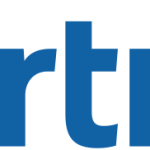- Branche: Consulting
- Number of terms: 1807
- Number of blossaries: 2
- Company Profile:
Gartner delivers technology research to global technology business leaders to make informed decisions on key initiatives.
An autonomous system (AS) is an administrative domain. All members of an AS that share route information can handle traffic to and from any destination.
Industry:Technology
Auto-tiering is a quality of storage service feature that enables logical volumes or LUNs to span different tiers of storage and transparently move portions of the logical volume between tiers of storage to minimize storage costs and deliver consistent performance and throughput. The movement of sub-LUNs between tiers is managed by auto-tiering algorithms and/or policy. This makes it practical to reduce the storage costs of applications without redesigning them to make them storage-aware, and it avoids the onerous task of doing data classification. Typical implementations support storage tiers built with solid-state disks (SSDs), Fibre Channel (FC) or Serial-Attached Small Computer System Interface (SAS SCSI), and Serial Advanced Technology Attachment (SATA) or nearline disks, and may include restrictions on the movement of sub-LUNs between different tiers of storage.
Industry:Technology
Also known as “warm recovery,” automatic restart is the resumption of operation after a system failure with minimal loss of work or processes (as opposed to a “cold” restart, which requires a complete reload of the system with no processes surviving).
Industry:Technology
Automatic content recognition (ACR) refers to the ability of a client application (typically a smartphone or media tablet app) to identify a content element within its proximity _ audio, video or digital image _ based on sampling a portion of the audio or video (or image), processing the sample and comparing it with a source service that identifies content by its unique characteristics such as audio or video fingerprints or watermarks.
Industry:Technology
Automated vehicle locating (AVL) enables fleet operators to locate and track the movements of their fleets in real time, using onboard sensors and cellular or satellite links that can capture and communicate GPS coordinates. When AVL is combined with electronic onboard recording (EOBR) devices, users can also capture and communicate data such as engine performance, fuel state, hours of operation, maintenance problems, cargo temperature and tampering alerts.
Industry:Technology
Automated testing applies to commercially or internally developed software or services to assist in the testing process, including functional and load/stress testing. Automated tests provide consistent results and data points. The benefits are ease of maintenance, the ability to efficiently use resources in off-peak hours, and the capability to create reports based on the executed tests. Associated quality management tools include functionality for test planning, test case management and defect management (the governance piece of quality).
Industry:Technology
An automated teller machine (ATM) is a public banking machine that is usually hooked up to a central computer through leased local lines and a multiplexed data network.
Industry:Technology
Often referred to as “lights-out operations,” automated system operations (ASO) is a combination of hardware and software that allows a computer installation to run unattended — that is, without the need for a human operator to be physically located at the site of the installation.
Industry:Technology
Automated payment tracking and reconciliation services enable the tracking of payments and associated documents (invoice and/or collection), and payment release without manual intervention. Connecting the bank to the customer’s general ledger enables reconciliation of transactions, cash application, liquidity analysis and the updating of credit positions. Exception items are flagged for further analysis.
Industry:Technology
Gartner’s term for an architecture and set of processes to manage the creation and delivery of mission-critical, high-volume digital documents. The ADF applies factory production concepts to the document production — raw materials, including data and preparation instructions, enter the ADF, where they are transformed into digital documents and prepared for delivery.
Industry:Technology
